Statement on the NGO Expulsions by Sudan
“The Obama administration and the other members of the United Nations Security Council must convey a simple and direct message to Khartoum: Access for relief agencies needs to be immediately restored, or the international community will use all necessary means to restore this access,” said John Norris, Executive Director of the Enough Project at the Center for American Progress. “The time has come for the international response to Darfur’s agony to move beyond the rhetorical, and the vulnerable people of Sudan do not have time for lengthy policy reviews.” In response to the International Criminal Court arrest warrant for President ...
The Court Speaks
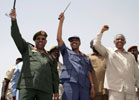
The International Criminal Court, or ICC, has issued an arrest warrant for Sudan’s President, Omar al-Bashir, on charges of crimes against humanity and war crimes. This is good news. There was never any doubt that the wholesale attacks in Darfur against civilians carried out by janjaweed militias were directed and engineered from the presidential palace in Khartoum, and the court in many ways has only acknowledged the obvious. What may be counter-intuitive to a lot of people: the warrant should make peace in Sudan more likely, not less. Why? As we saw with the earlier international indictments against Liberian President ...
State Department on Human Rights
The 2008 country-by-country human rights reports issued by the State Department were released yesterday. They can be found here. These reports offer a great deal of insight and a huge amount of work is put into compiling them. Often, the Human Rights Report takes a much tougher line on abuses than you will hear from the State Department podium or from respective ambassadors. I find the entire exercise a good example of the kind of quality reporting that Foreign Service officers can produce when political interference and editing is kept to a minimum. Poke around and see what you find ...
Enough on Sri Lanka?
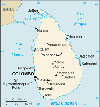
In this recent exchange on Bloggingheads TV and in a number of emails, people have asked why Enough has not spoken out on the unfolding tragedy in Sri Lanka. Certainly, Sri Lanka’s conflict is one of the world’s deadliest and ugliest. As a recent report by Human Rights Watch makes clear, both sides have repeatedly violated international law and targeted civilians with numbing frequency. Certainly, we at Enough recognize the severity of the problem, and the need for greatly improved efforts to protect civilians. Having done field humanitarian work in Sri Lanka earlier in my career, I think Sri Lanka ...
More Grim News from Zimbabwe
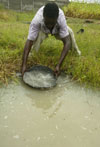
According to the U.S. Agency for International Development and the World Health Organization, Zimbabwe’s cholera problem continues to spread. Since the outbreak began last August, “the disease has spread to all of Zimbabwe’s 10 provinces and 56 of Zimbabwe’s 62 districts,” according to USAID. More than 78,900 cases of cholera have been reported, causing more than 3,700 deaths. USAID also noted, “If current daily cholera rates continue, the total caseload could enter the lower range of WHO’s worst-case scenario, currently estimated at 81,000 to 115,000 cases, in less than one week.” This is even more appalling given that cases may ...
Under Review?
A funny, and somewhat surreal, exchange in the State Department briefing this last week, after a reporter asked the acting State Department Spokesman, Robert Wood, if the administration would support the work the International Criminal Court, or ICC, is “doing related to Darfur and the situation in Sudan?” MR. WOOD: Certainly. As I said, Matt, you know, we want to see those who commit atrocities, who are responsible for atrocities taking place anywhere around the world, held accountable. QUESTION: By the ICC, or would you prefer to see it done by some other -- MR. WOOD: Well, the ICC is ...
Sachs on Darfur
Jeffrey Sachs, an adviser to United Nations Secretary-General Ban Ki-moon, has been making the speechmaking rounds, and talking about Darfur. He starts with an interesting premise: that the problems in Darfur are primarily development related, not military. Sachs is correct that tensions over resources, particularly water, in Darfur are acute and longstanding. According to the article, Sachs asserted “cutting wasteful spending on military operations and what he described as excessive corporate bonuses would help the world mobilise enough funds to tackle poverty and ensure comprehensive access to primary healthcare and safe water.” That all sounds rather nice, and not surprisingly ...
The State of Peacekeeping
You might have missed it during the week, but the New York Times did an interesting piece on the somewhat dilapidated state of UN Peacekeeping operations these days. The details are not surprising: UN peacekeeping Missions are being called on to do more and more but doing it much less effectively. The key dilemma, the Security Council keeps sending peacekeepers to places like Congo and Darfur where there is no peace to keep and without sufficiently robust forces or the right mandate to enforce a peace and keep warring parties in their places. A Nigerian General makes a very common ...
More on the Warrant
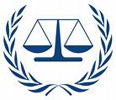
Lots of reports—and some conflicting information— currently swirling around regarding the arrest warrant for Sudanese President Omer al-Bashir. In a statement, the ICC insisted that they have yet to issue a warrant for Bashir, which may be true in the narrow sense, but with the multitude of leaks coming out of U.N. headquarters saying that such a decision has been reached and will appear soon, it is difficult not to conclude that a warrant is indeed a done deal. The Washington Post is saying that the court agreed with the prosecutor’s call for charges on war crimes, and crimes against ...
Congo’s $20 Billion Dilemma
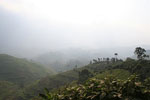
A very interesting piece in the Financial Times on Congo, China and western aid. Apparently, some of the clauses written into the nine billion dollar mineral deal between China and Congo have led the IMF and the World Bank to insist that 11 billion dollars in debt relief for Congo cannot go forward unless sections of the deal are changed. In particular, the deal with Beijing gives China sweeping financial guarantees, including through earmarks of state revenues. The deal was struck before the global economic crisis, and a sharp tumble in both commodity prices and China’s demands for these resources ...

